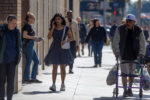A recent lawsuit filed in Iowa has sparked significant concerns among disability rights advocates, who fear the legal challenge could undermine the critical protections afforded under Section 504 of the Rehabilitation Act of 1973. This landmark federal law prohibits discrimination against individuals with disabilities in programs or activities receiving federal financial assistance, ensuring access to education, healthcare, and other essential services.
The Lawsuit and Its Focus
The lawsuit, initiated by a coalition of institutions and advocacy groups, challenges recent updates to Section 504 regulations. These changes, introduced to strengthen and modernize disability protections, are being contested on the grounds that they impose excessive compliance burdens, particularly on schools, healthcare providers, and other federally funded entities. Plaintiffs argue that the revised regulations are overly restrictive, costly to implement, and could lead to operational challenges for institutions already under strain.
However, disability rights groups contend that these updates were designed to address long-standing gaps in accessibility and equity. For many, the changes represent a long-overdue effort to ensure that individuals with disabilities are afforded the same opportunities and resources as their non-disabled counterparts.
Advocates Raise Alarms
Disability Rights Iowa, a leading organization in the state, has been vocal about the potential ramifications of the lawsuit. “Section 504 is a cornerstone of disability rights in the United States,” a spokesperson for the group stated. “Weakening its protections would not only harm those with disabilities but also erode decades of progress toward equality and inclusion.”
The group emphasizes that the contested updates were carefully crafted to close accessibility loopholes that have persisted for years. These include ensuring that physical spaces, digital platforms, and essential services are designed to be inclusive and accommodating. “This isn’t about creating unnecessary regulations,” the spokesperson added. “It’s about ensuring fairness and dignity for everyone, regardless of ability.”
Potential National Implications
If the lawsuit succeeds, advocates warn it could set a dangerous precedent, inviting further challenges to other cornerstone disability rights laws, such as the Americans with Disabilities Act (ADA). Given the interconnected nature of these legal frameworks, a weakening of Section 504’s provisions could have a ripple effect, jeopardizing the broader landscape of disability rights in the United States.
Legal experts have echoed these concerns. Karen Thompson, a legal analyst specializing in disability law, explained, “The protections provided by Section 504 and the ADA are interlinked. Weakening one could inevitably weaken the other, leaving millions of Americans vulnerable to discrimination and exclusion.”
For families and individuals who rely on these protections, the stakes are high. Advocates fear that a rollback of Section 504 provisions could lead to reduced access to educational resources, inadequate healthcare accommodations, and significant barriers to public services. This would disproportionately affect already marginalized communities, exacerbating inequities and undermining the principle of equal opportunity.
The Broader Debate Over Compliance
The lawsuit also raises broader questions about the balance between regulatory requirements and institutional capacity. Plaintiffs argue that the financial and logistical demands of compliance could strain already underfunded systems, particularly in rural areas and smaller communities. Schools, for example, may struggle to retrofit older buildings or implement new technologies to meet updated accessibility standards.
However, disability rights groups counter that such arguments overlook the fundamental purpose of these regulations. “Accessibility isn’t a luxury—it’s a basic human right,” said Sarah Morales, an advocate with the National Disability Rights Network. “Institutions receiving federal funding have a responsibility to serve all members of their communities, including those with disabilities. The cost of compliance should be viewed as an investment in equity, not an undue burden.”
Voices of Those Affected
For individuals with disabilities and their families, the potential rollback of Section 504 protections is deeply personal. John Ramirez, a father of two children with disabilities, shared his concerns about how the lawsuit could impact access to education. “My kids have benefited so much from the accommodations required under Section 504,” he said. “Without those protections, I’m worried they’ll face unnecessary barriers that could hold them back.”
Similarly, healthcare advocates warn that weakened regulations could lead to significant disparities in medical care. “Accessible healthcare isn’t just about physical ramps or elevators,” explained Dr. Emily Carter, a disability healthcare specialist. “It’s about ensuring communication tools, adaptive equipment, and inclusive practices that meet the needs of all patients. Rolling back these protections would be a step backward for public health.”
Mobilizing for Action
In response to the lawsuit, disability rights groups across the nation are mobilizing to raise awareness and advocate for the preservation of Section 504 protections. Campaigns are underway to educate the public about the importance of these regulations and the potential consequences of their erosion.
“This is a pivotal moment for the disability rights movement,” said Matthews. “We must ensure that the progress we’ve made is not undone.”
Advocates are urging policymakers to uphold the updates to Section 504 and to recognize the critical role they play in fostering an inclusive society. They argue that the long-term benefits of accessibility far outweigh the short-term challenges of implementation.
Looking Ahead
As the lawsuit progresses, its implications will be closely watched by disability advocates, legal experts, and affected communities. The outcome has the potential to shape the future of disability rights in the United States, reinforcing or undermining the principles of equity and inclusion.
For more information on Section 504 and its implications, visit Disability Rights Education and Defense Fund.
Disclaimer – Our team has carefully fact-checked this article to make sure it’s accurate and free from any misinformation. We’re dedicated to keeping our content honest and reliable for our readers.








